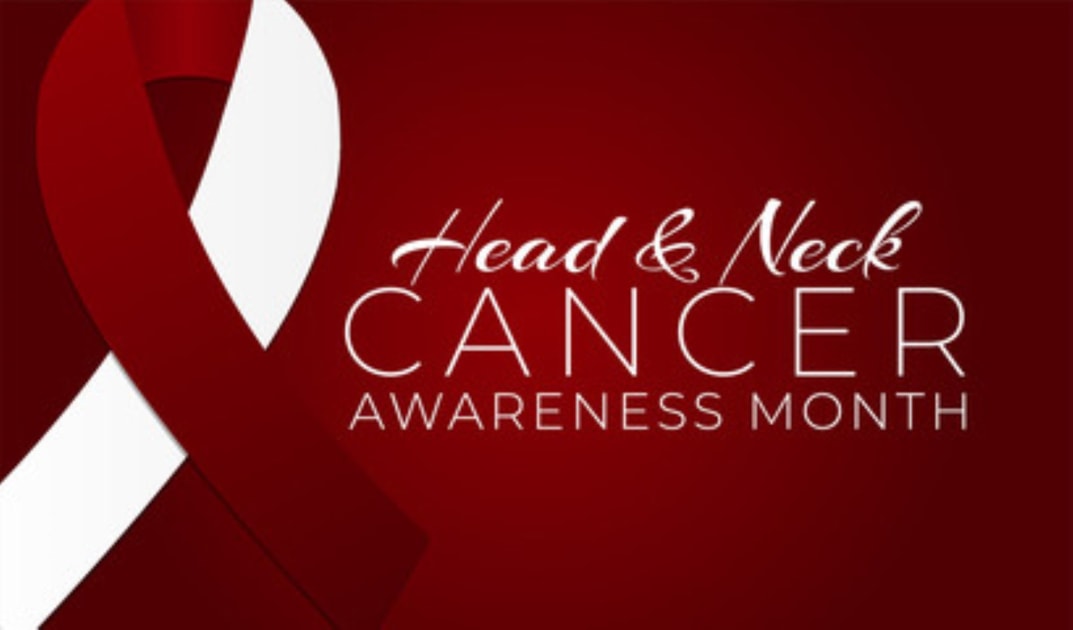Head and Neck Cancer: Five Things You Need to Know - Yale School of Medicine
Head and Neck Cancer: Five Things You Need to Know - Yale School of Medicine |
- Head and Neck Cancer: Five Things You Need to Know - Yale School of Medicine
- Mayo Clinic Q&A: Adults Up to Age 45 and at Risk for HPV infection Can Get Vaccine - Chicago Health
- LiveSmart: Head and Neck Cancer – Know the Signs and Symptoms, Catch it Early - St. Peter's Health Partners
| Head and Neck Cancer: Five Things You Need to Know - Yale School of Medicine Posted: 06 Apr 2021 12:00 AM PDT  |
| Mayo Clinic Q&A: Adults Up to Age 45 and at Risk for HPV infection Can Get Vaccine - Chicago Health Posted: 15 Apr 2021 09:30 PM PDT  DEAR MAYO CLINIC: Why is the HPV vaccine now offered to adults and adolescents? I was surprised to hear that it's recommended up to age 45. Will the vaccine do any good for adults who already have HPV? ANSWER: The Centers for Disease Control and Prevention (CDC) now recommends that some adults ages 27 to 45 talk with their healthcare provider about the human papillomavirus, or HPV, vaccine. The vaccine isn't necessary for everyone in that age group. The focus is on people who weren't vaccinated when they were younger and are at risk for infection. If you're older than 26 and aren't sure if you need the vaccine, ask your healthcare provider. Although the HPV vaccine can prevent a new HPV infection, it cannot treat one you already have. HPV is the most common sexually transmitted infection in the U.S. Almost all sexually active people get an HPV infection at some point. In many cases, HPV may not cause symptoms or lead to health concerns, and the body clears the infection without any problems. But certain strains of HPV are dangerous viruses that can lead to cancer and genital warts. Two strains of HPV cause 70% of all cervical cancer and cervical precancerous lesions. Once cervical cancer develops, it is difficult to treat and can be life-threatening. HPV infections also can lead to other genital and anal cancers in females, as well as penile cancer and anal cancer in males. In addition, HPV causes most oral and throat cancers, as well as genital warts in men and women. The HPV vaccine has proven to be a safe and effective way to prevent HPV infection. But it can't cure an existing infection. So the best time to get the vaccine is before you are exposed to the virus. That means it's ideal to be fully vaccinated before becoming sexually active. The vaccine is most effective and has been most extensively studied in children between the ages of 9 and 14. During that time, the immune system response to the vaccine is robust, providing excellent protection against HPV. People in this age group require only two doses of the vaccine, with the second dose given six months to one year after the first. For people who receive their first shot of the vaccine after age 14, a three-dose series is recommended to achieve the most effective immune response. Until recently, the vaccine wasn't recommended for people older than 26. That's because it provides less benefit after a person has been exposed to the virus, and most people older than 26 already have been exposed. However, the CDC now recommends that people between the ages of 27 and 45 talk to their healthcare provider about the benefit the vaccine may have for them. In particular, it may be worthwhile to get the HPV vaccine if you are in that age group and are sexually active outside of a long-term monogamous relationship. At any age, having a new sexual partner significantly increases your risk of a new HPV infection. And due to the seriousness of the diseases HPV can cause, it is important to ensure that you are adequately vaccinated against the virus any time you change partners. In general, if you are 27 to 45 and are in a long-term relationship with only one sex partner, or if you are not sexually active, you do not need the HPV vaccine. The HPV vaccine offers protection against the medical concerns caused by the HPV virus, some of which can be deadly. If you're older than 26 and you think you may need the HPV vaccine, talk with your healthcare provider. It is worth considering, because the HPV vaccine has proven to be a safe and effective anti-cancer vaccine. — Gregory Poland, MD, Vaccine Research Group, Mayo Clinic, Rochester, Minnesota (Mayo Clinic Q & A is an educational resource and doesn't replace regular medical care. E-mail a question to MayoClinicQ&A@mayo.edu. For more information, visit www.mayoclinic.org.)(C)2021 Mayo Foundation for Medical Education and Research. All Rights Reserved. Distributed by Tribune Content Agency, LLC. |
| Posted: 29 Apr 2021 04:03 PM PDT [This story was written by Anne Lawton, RN, a Nationally Certified Tobacco Treatment Professional and community outreach nurse, St. Peter's Health Partners.] As April draws to a close, it is a good time to remember it is Head and Neck Cancer Awareness Month. Like so many cancers, early detection and treatment is critical to better long-term outcomes. Head and neck cancer is an umbrella term that encompasses cancers in the oral cavity (mouth), pharynx (throat), larynx, esophagus, sinus and nasal cavities, and salivary glands. According to the American Cancer Society 2021 Fact & Figures, approximately four percent of the population will be diagnosed with one of these cancers. The most common causes of head and neck cancer are tobacco and alcohol use, obesity, exposure to toxic substances, and Human Papilloma Virus (HPV). Symptoms of head and neck cancer may include:
There is no screening blood test for this type of cancer, but your dentist or healthcare provider will assess you through a physical exam at your annual or biannual exam. Treatments vary based on the type of cells found and the stage of the disease, and may include surgery, a combination of chemotherapy and radiation, and immunotherapy. It can be an intensive treatment, one best provided through a comprehensive cancer care center with a healthcare team including nutritionists, speech therapists, navigators, social workers, physical therapists, and a tobacco cessation facilitator. A cancer diagnosis is very scary and patients can feel overwhelmed and alone. St. Peter's multidisciplinary cancer care team can help develop a personalized treatment plan based on the type, location and extent of your cancer. We are accredited as a comprehensive, community-based Cancer Care Program by the American College of Surgeons Commission on Cancer, and an annual Women's Choice Award recipient for America's Best Hospitals in Cancer Care since 2017. For more information, please talk to your primary care provider or call the St. Peter's Hospital Cancer Care Center at 518-525-1827 or the Hildegard Medicus Cancer Center at Samaritan Hospital – St. Mary's Campus in Troy at 518-268-5060. |
| You are subscribed to email updates from "hpv symptoms" - Google News. To stop receiving these emails, you may unsubscribe now. | Email delivery powered by Google |
| Google, 1600 Amphitheatre Parkway, Mountain View, CA 94043, United States | |

Comments
Post a Comment